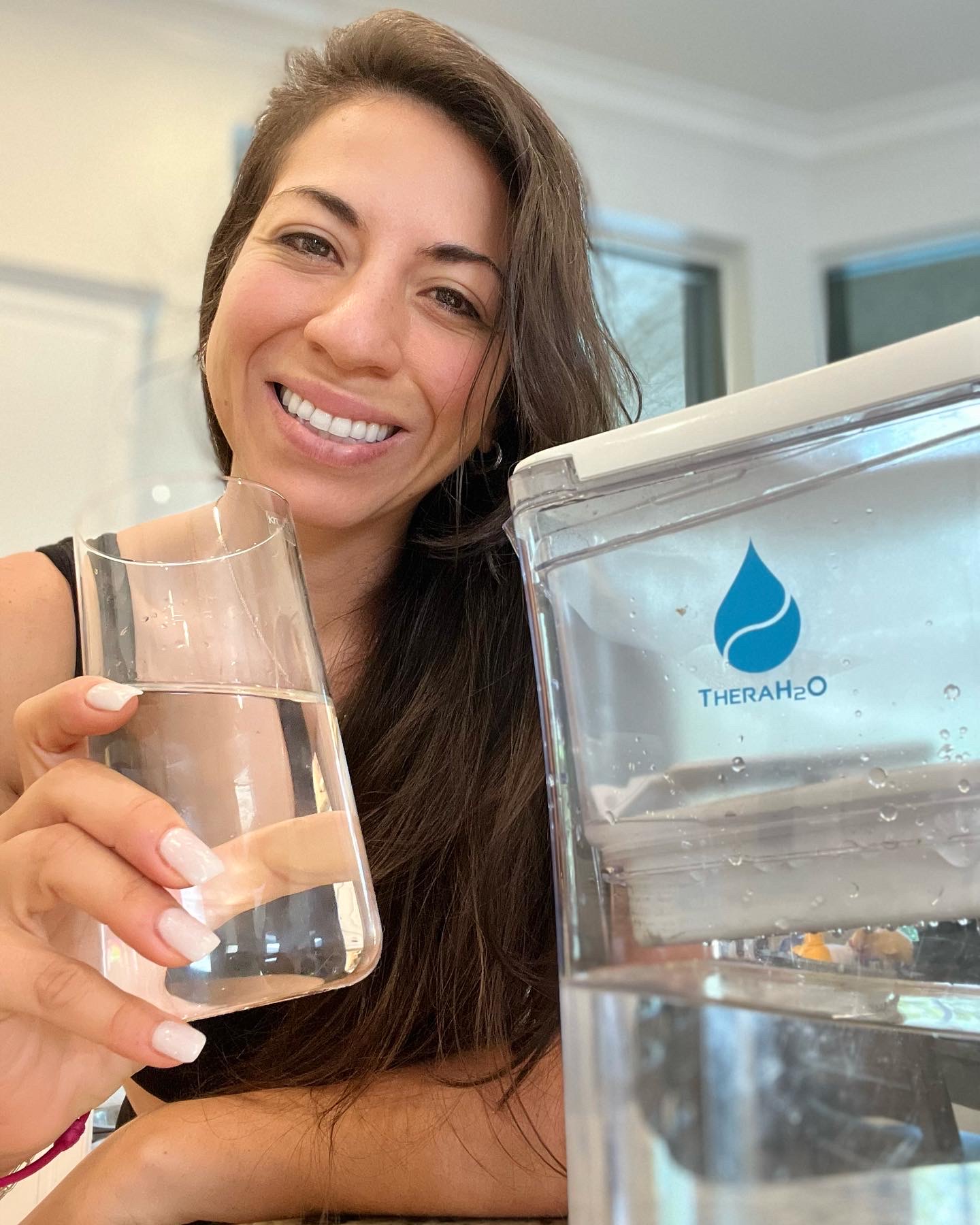

Most people think hydration simply means drinking enough water throughout the day… but it’s so much more than that.
Hydration affects your energy, your glucose levels, your digestion, your mood, even your ability to think clearly. For some, being under-hydrated can actually increase or decrease glucose levels outside their normal range, leading to symptoms like nausea, headaches, stomach pains, and those painful middle-of-the-night cramps (hello, charley horses!).
So, what’s really happening when we’re dehydrated, and how do we fix it? Let’s dive in.
Here’s something most people don’t realize: hydration has a direct impact on your blood sugar balance. When you’re dehydrated, your blood becomes more concentrated, which can make glucose readings higher. On the flip side, if your hydration is off while taking glucose-lowering medication or fasting, your levels can dip too low.
That’s why we always remind our clients: hydration is a metabolic regulator. It helps your body move nutrients, flush toxins, support kidney and liver function, and balance blood sugar naturally.
You can drink water all day long, but if your diet is filled with processed foods, you’ll still be dehydrated. Why?
Because ultra-processed foods are loaded with sodium, sugar, and artificial ingredients, all of which pull water out of your cells. It’s like your body can’t hold onto hydration no matter how much you drink.
Processed foods can also cause inflammation, which disrupts your body’s electrolyte balance and makes you feel bloated, tired, or foggy, even when you think you’re “hydrated.”
Hydration starts with whole, balanced meals, rich in fiber, healthy fats, proteins, and minerals that help your body actually absorb the water you’re drinking.
Whether you’re intentionally fasting or just sleeping through the night, your body goes several hours without fluids. You wake up dehydrated every single morning — even if you don’t feel it.
One of the biggest patterns we see when meeting with clients?
Most people don’t start their morning with a glass of water.
Instead, they go hours before having a sip, skip breakfast or grab something processed and carb-heavy. Those carbs quickly convert into glucose, causing a blood sugar spike first thing in the morning, all while the body is still in a dehydrated state.
This one surprises people. Seed oils, like canola, soybean, sunflower, and corn oil aren’t just inflammatory; they also disrupt your body’s hydration balance.
These oils are high in omega-6 fatty acids, which create oxidative stress and inflammation in your cells. When cells are inflamed, they can’t hold onto water efficiently. Think of it like tiny leaks forming in your hydration system.
Over time, seed oils make your cells less responsive to nutrients, less efficient at detoxifying, and more prone to chronic dehydration, even if you’re drinking plenty of fluids.
Here’s what we recommend for optimal hydration and blood sugar balance:
Electrolytes are key to proper hydration they help your body absorb and use the water you drink. But more isn’t always better.
Here’s how to do it right:
This keeps your electrolytes steady, supports energy and digestion, and helps your body stay hydrated throughout the day, not just in short bursts.
If you’re wondering which ones we personally use and love, here are our go-tos:
✨ LMNT Electrolytes – Clean ingredients, perfectly balanced sodium-to-potassium ratio, and no sugar.
✨ Redmond Re-Lyte – Made with real salt and natural minerals, free of artificial colors and sweeteners.
Both are excellent choices to support hydration, muscle function, and recovery, without the junk found in most electrolyte mixes.
Hydration is one of the simplest, yet most overlooked, keys to better energy, balanced blood sugar, and vibrant health. It’s not just about water intake; it’s about what you eat, when you drink, and what you avoid.
So tomorrow morning, skip the coffee (just for a few minutes 😉), and start with a glass of water.
Your cells, and your energy, will thank you.